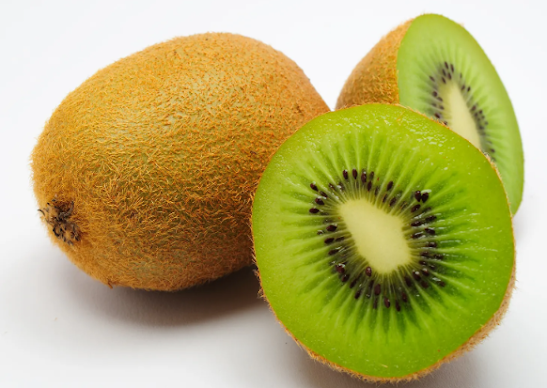In the
hustle and bustle of ultramodern life, it's easy to overlook the simple yet
profound prodigies that nature offers us. One similar phenomenon is the sun —
the warm, radiant energy emitted by our nearest star, the sun. Beyond
furnishing light to our world, the sun is nature's health catholicon, offering
an array of physical, internal, and emotional benefits. In this composition, we
will explore the prodigies of the sun and how employing its mending magic can
significantly enhance our well-being.
The Wisdom of the Sun
Before we
dive into the health benefits, let's understand the science behind the sunshine.
sunshine is composed of different wavelengths of light, including ultraviolet (UV)
shafts, visible light, and infrared shafts. Among these, UV shafts can be
distributed into UVA, UVB, and UVC, each with varying goods on our bodies.
Understanding UVA, UVB, and UVC shafts
UVA shafts
These shafts have longer wavelengths and can access deep into the skin. They're
associated with skin aging and may contribute to skin damage.
UVB shafts
These shafts have shorter wavelengths and affect the skin's top sub-caste.
They're responsible for sunburns but also spark the product of vitamin D in the
skin.
UVC shafts
Fortunately, the ozone subcaste in the Earth's atmosphere absorbs these
dangerous shafts, precluding them from reaching the face.
The Health Benefits of Sun
Now that we
comprehend the different types of sun, let's explore the inconceivable health
benefits it offers.
Boosting Vitamin D Production
Sunshine
Vitamin Exposure to the sun stimulates the product of vitamin D in our skin.
Vitamin D is vital for maintaining healthy bones, supporting the vulnerable
system, and precluding colorful conditions.
Reducing
pitfalls Sufficient vitamin D situations have been associated with a reduced
threat of certain cancers, cardiovascular conditions, and autoimmune diseases.
Enhancing Mood and Mental Health
Sun and
Serotonin Sun exposure triggers the release of serotonin, frequently
appertained to as the" happy hormone." Advanced serotonin situations
are linked to bettered mood and a sense of well-being.
Fighting
Depression Sun remedy, also known as light remedy, is an effective treatment
for seasonal affective complaint ( SAD), a type of depression that occurs
during certain seasons, generally during downtime.
Regulating Circadian meter
Circadian
meter Sun plays a pivotal part in regulating our internal body timepiece or
circadian meter. A balanced circadian meter promotes better sleep patterns,
cognitive function, and overall health.
wakefulness
Relief Exposure to natural light during the day can help combat wakefulness and
ameliorate the quality of sleep.
Strengthening the Immune System
Immune-
Boosting parcels Sun exposure can enhance the function of T cells, which are
essential for a robust vulnerable system.
Wound
Healing Sun has been set up to prop in the mending process of certain skin
conditions and injuries.
Promoting Skin Health
Acne
Management Moderate sun exposure may help palliate acne due to its
antibacterial parcels.
Psoriasis
Relief Sun has been shown to be salutary for individualities with psoriasis, a
habitual skin condition.
Safety Preventives and Responsible Sun Exposure
While the sun
offers multitudinous health benefits, it's essential to enjoy it responsibly
and avoid implicit pitfalls associated with inordinate exposure.
Optimal Sun Exposure
Timing
Matters The stylish time to admit sun for vitamin D conflation is generally during
mid-morning to early autumn.
Sunscreen
operation When spending extended ages outside, especially during peak sun
hours, apply sunscreen with applicable SPF to cover your skin from dangerous UV
shafts.
Seeking Shade
UV Index
Awareness Be aware of the UV indicator, which indicates the intensity of UV
shafts in your area. Avoid the direct sun during high UV indicator days.
Protective
Clothing Wear featherlight, defensive apparel, similar to headdresses and long
sleeves, to shield your skin from inordinate sun exposure.
Conclusion
In
conclusion, the sun isn't just a source of light; it's a magical catholicon
that can profoundly impact our health and well-being. From boosting vitamin D products
to enhancing mood and supporting our vulnerable system, the mending powers of the
sun are inarguable. Embrace the mending magic of the sun responsibly by
incorporating safe sun habits into your diurnal routine.
FAQs
Can the sun
help all types of cancers?
Sun exposure
can reduce the threat of certain cancers, but it may not help all types. It's
essential to exercise other healthy habits and consult with healthcare
professionals for comprehensive cancer forestallment.
How
important sun is considered safe for the skin?
Safe sun
exposure varies grounded on factors similar to skin type, geographical
position, and time of day. Generally, 10 to 30 twinkles of the sun many times a
week can be salutary for vitamin D conflation.
Is
artificial light remedy as effective as the natural sun for treating
depression?
Light remedies
can be effective for treating depression, but natural sun is generally
preferred when available. Consult a healthcare professional to determine the
stylish approach for your specific requirements.
Can too much
sun be dangerous to the skin?
inordinate
sun exposure, especially without protection, can lead to sunburn, unseasonable
aging, and an increased threat of skin cancer. rehearsing sun safety is
pivotal.
Is it
possible to get enough vitamin D through diet alone?
While some
foods contain vitamin D, it can be grueling to get sufficient quantities solely
from the diet. Sun remains the most significant natural source of vitamin D products
in our bodies.
.png)



















%20SummerSkinCare.jpg)





